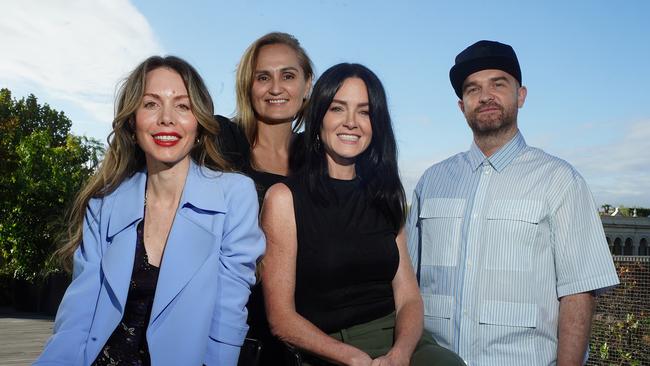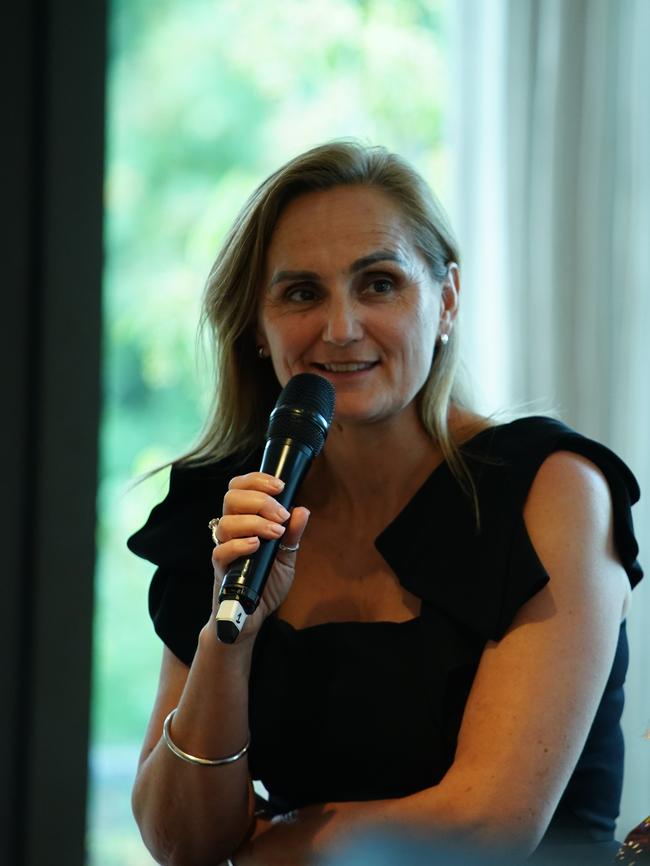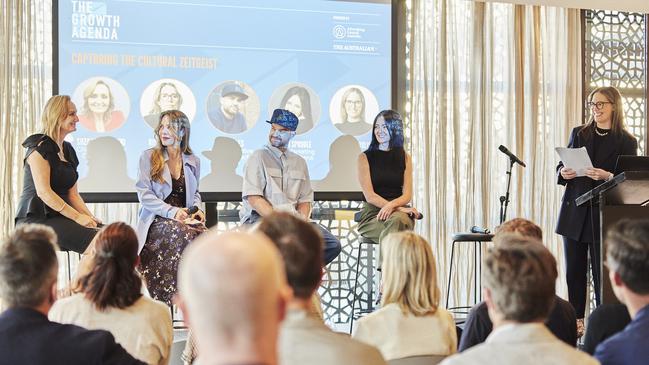Cultural relevance an essential element to brand development
A panel of marketing, advertising and creative leaders joined The Growth Agenda and Advertising Council Australia in Melbourne to discuss the commercial and creative value of being ‘culturally relevant’ to audiences amid rapid economic and social change.

Top marketing chiefs, creative leaders and advertising executives have said that brands must be attuned to cultural and societal shifts to connect with customers and grow against the backdrop of a rapidly evolving and risk-averse commercial landscape.
Speaking at an event for The Growth Agenda and Advertising Council Australia in Melbourne last Thursday, industry leaders explained that communicating with originality and “cultural relevance” was a growing imperative within companies, particularly as generative artificial intelligence could bring larger volumes of homogenised content to audiences than ever before.
NAB chief marketing officer and panellist Suzana Ristevski said “big ideas” and original creativity were retaining their value to brands amid rapid societal and technological shifts.

“The more technology we have, the more we have to go back to even better, more brilliant, creative, because we’re all accessing the same stuff,” she said.
“It’s all going to be incredibly commoditised. So to me, cultural nuance, big ideas, and creativity have never been more important.”
These concepts, such as “big ideas” and how brands communicate to be culturally relevant to audiences have helped set some companies on powerful growth trajectories over the decades.
Dentsu Creative ANZ’s chief executive Kirsty Muddle explained that for creative individuals in the advertising and marketing industry, this way of thinking is second nature, but as more data becomes available, solving business problems is still a human-led creative act.
“You’re coded as a creative (person) to observe culture. So you’re always looking at the world. And I think that’s been a currency that creative people have had since the beginning of ages,” Ms Muddle said.

“And we’ve become better at observing through the power of data. You’re constantly observing the heartbeat of culture and the communities that you’re looking at. We’re doing it through tools; we’re doing through AI. But most importantly, we’re doing it through the eyes of human beings and our creative community.”
R/GA’s vice-president executive creative director for APAC, Ben Miles, said brand “authenticity” was critical to reach customers, citing the need to be inclusive. This is also linked to the need for brands to operate with a strong sense of purpose, he said.
Mr Miles said this also stemmed back to the composition of internal teams, which should also be diverse.
“If you’ve got representation on your team, you’ve got people who can walk into a room and understand the people they’re talking to. They can relate, they can empathise,” he explained.
“That’s really important because when you miss the mark is when businesses and brands don’t understand what they’re trying to do. They’re just trying to sort of show up, drop an idea and leave.
“But real brands that resonate with their customers create long-lasting impact because they’re really authentically trying to improve or engage or push forward a community. That’s really important because people can smell a phony. They know whether you’re there for the long term or the short term. It’s really important that brands have to show up and commit.”
Brands are increasingly aligning themselves to cultural phenomena, like global and local brands did to leverage the cultural capital of Barbie: The Movie, the Matildas’ success at FIFA: Women’s World Cup, and most recently as Taylor Swift fever swept the nation during the Australian leg of her Eras tour.

Home loan challenger Athena’s chief marketing officer Sarah Sproule warned that brands must be selective about which cultural trends they tap into, however.
“Culture itself is nuanced. And then how you tap into that creatively also has another nuance depending on the category that you work in,” she said.
But brands do still hold immense power to shape consumers’ lives. “The brands we choose to wear and the brands we choose to put in our homes, they are conscious decisions. Therefore, I think brands are definitely a massive part of culture,” Ms Sproule added.
With that responsibility, however, can come brand reputation and commercial risk.
One of the most high-profile cases in recent years occurred in early 2023 when beer brewer Anheuser-Busch InBev marketed its brand, Bud Light, to audiences by engaging a transgender influencer to promote the product on social media. The move was poorly received by a large portion of Bud Light’s consumer base, some of whom boycotted the brand at the time. Sales declined as a result.
However, panellists argued that a bigger brand risk looms.
Ms Ristevki said: “I still think that shouldn’t stop us from trying to get it right and be distinctive, and do brilliant creative, because there’s also a risk that you are ‘beige’, and your revenue doesn’t increase. It’s a balance. I take it as a strategic risk every day.
“Every day, I would fight for a great creative idea (rather) than get beige stuff out there.”







